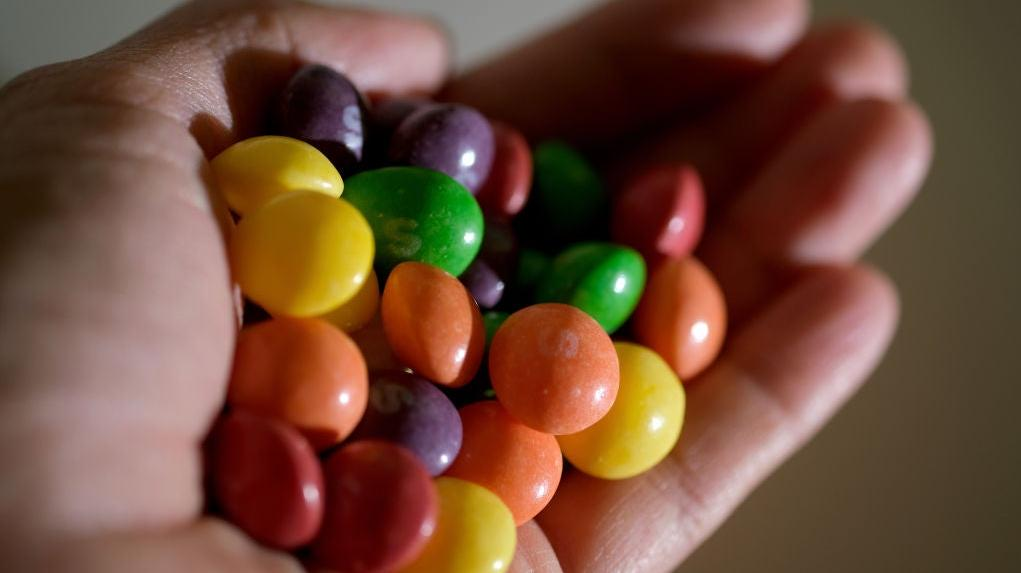Are Skittles Fit For Human Consumption?
A class action lawsuit claims maybe we shouldn’t be tasting the rainbow.
It's been a rough few months for Skittles. After a recall in May, a class action lawsuit was filed in July against Mars, Inc. claiming the company knowingly deceived consumers by not disclosing that Skittles, America's favorite non-chocolate candy, contain titanium oxide (TiO2), a substance the suit calls "unfit for human consumption." The substance is used to create the bright colors of the rainbow we all love to taste.
"The candy is well-known by its colorful array, which Mars has dubbed 'the rainbow' for marketing purposes and to great success," the suit says. "The color of Defendant's rainbow, however, is due to its use of TiO2."
The suit claims that the plaintiff bought Skittles but would not have done so had they known they contained TiO2 and therefore suffered "economic injury" by purchasing them.
Why Skittles is getting sued
Skittles, the suit alleges, would be just fine without the TiO2 and notes that other candies—it cites Swedish Fish, Black Forest Gummy Bears, Sour Patch Kids, and Nerds—do just fine achieving a colorful array without it.
The use of TiO2 is banned in the UK. On that matter, the European Food Safety Authority said in 2021 that it could not rule out genotoxicity, or the ability of a substance to damage one's DNA. Because it could not be ruled out, the EFSA decided to rule TiO2 out of their foods. In other sunny news, the International Agency for Research on Cancer (IARC) has said TiO2 is a potential carcinogenic.
Is titanium oxide really dangerous?
The New York Times did a deep dive on how safe titanium oxide really is, and their conclusion was more or less, "it depends on who you ask." The Times noted that the FDA is fine with TiO2 as long as it doesn't exceed 1% of a food's weight. The FDA also told the Times that European studies used to ban the chemical in the UK "do not demonstrate safety concerns connected to the use of titanium dioxide as a color additive."
The piece quoted all sorts of experts with a range of opinions on the matter, with some saying the European ban was based on flawed science, and others saying if there's any question as to the safety of TiO2, Mars might as well stop using it. The article didn't take a definitive stance, though, nor did the experts it quoted. Even one of the authors of a 2014 study about TiO2, Pierre Herckes, said he isn't sure what to make of current research or whether people should limit their consumption of it.
"I don't have a clear yes or no," he told the Times.
What’s next for Skittles?
Though Mars was required to comply with Europe's ban of TiO2, it hasn't made any moves to do so in the US, since the FDA sees no problem with it. Presumably, how the lawsuit plays out could change the company's next moves.
The suit demands a jury trial. Class action suits can take months or even years to resolve. Some cases settle, but as ClassAction.org notes, "a settlement isn't guaranteed."
Until then, I guess it's in consumers' hands to decide whether to fill those hands with colorful, fruity Skittles, or one of the many other candies that achieve their rainbow colors without TiO2. Swedish Fish, anyone?
